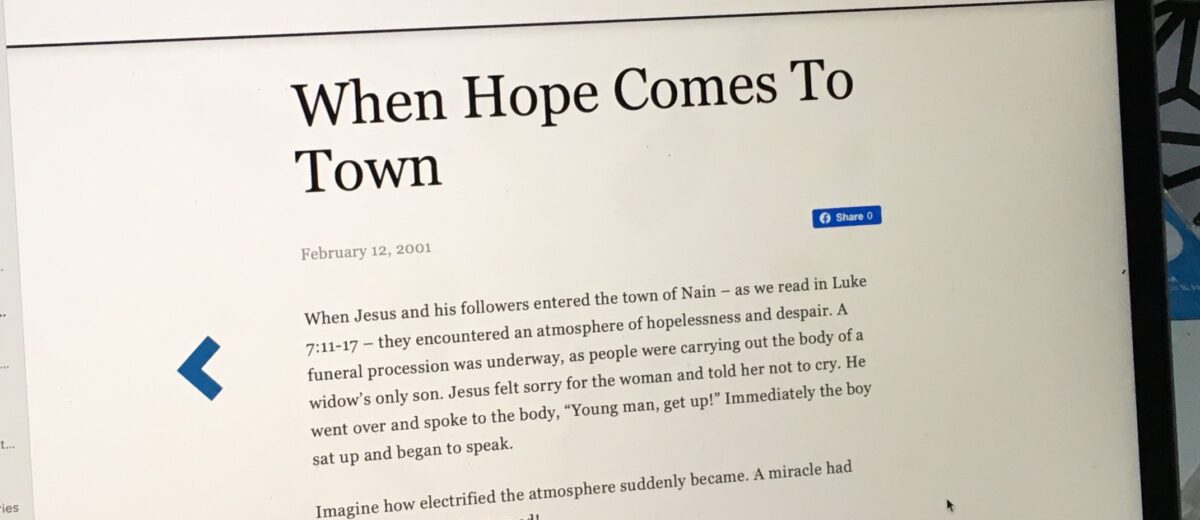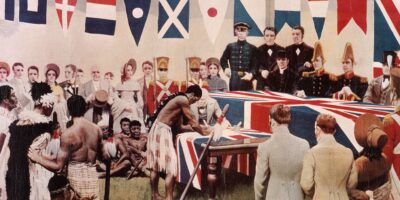Twenty years ago this week I wrote my first ‘Weekly Word’. Given a few gaps here and there, that is about one thousand columns, all still accessible on www.weeklyword.eu.
Scanning back through the archives over two decades, I realised how many key global and European developments of the new millennium they chronicled, stretching back to pre-euro days and further to the 9/11 attacks on the Twin Towers of New York.
In my role as director of YWAM Europe, I began writing ww’s primarily for fellow YWAMers living and working across Europe, including the former Soviet Union. The internet had become widely available just as the old communist world had begun to crumble, only a decade earlier. (Remember those early CompuServe addresses with the long numbers?) It was a great tool for coordinating mission efforts within our mission, as well as among sister organisations with whom we formed the umbrella of Hope for Europe.
After all, we reasoned, politicians, sports managers, media magnates and businessfolk were constantly seeking cross-border partnerships, trying to shape the New Europe. Yet pan-European thinking did not come naturally to most evangelical leaders, suspicious about developments in Brussels around the (then) 15-member European Community. Most denominational networks were focused within nations. What if teachers, artists, people working among children or youth, sports ministries, urban ministries, families, marketplace ministries, prayer networks, and so on, could be linked in prayer and ministry across national borders? This may seem obvious to us now, but then was radically new! These networks were to form the skeleton for the first of two Hope for Europe congresses held in Budapest (2002, 2011), many of which are still active.
Expanded horizons
As my own horizons expanded to recognise what God was doing in the broader body of Christ in Europe and beyond, so too the ww readership broadened to include many from different spiritual streams and across the globe.
Those were the days when movements promoting new youth congregations were emerging; when fresh expressions of church were being explored, and when we were awakening to the spiritual hunger outside our church walls.
Those were also the days when we were awakening to the global reality that the centre of gravity of the Body of Christ had moved to the majority, non-western world, and that Europe – the nursery of Christianity – had itself now become a needy mission field.
The former Soviet Union was now wide open to the gospel as the people reasoned that if the authorities had said there was no God, then the truth had to be that he did indeed exist! Visits to Georgia, Armenia, Siberia, Lithuania, Estonia, Latvia and Ukraine, among other post-Soviet destinations, made me aware of God’s activity beyond my narrow horizons. I discovered the spiritual revolution behind the fall of communism, which became a series of ww’s bundled into the reader A spiritual uprising (ask me for the free ebook).
Spiritual legacies
How enriching it was also to discover the spiritual legacies of Central and Eastern Europe, also now newly opened to the gospel! The lands of Jan Hus, Martin Luther, Jan Amos Comenius and Count Zinzendorf were now open to visit, leading to our first Continental Heritage Tour in 2005. COVID did not stop us from leading this tour again last summer – online.
In fact, you can join us again in two weeks, March 1-5, on an online Continental Heritage Tour, for two hours each day, 7-9pm (CET). You will receive a photoguidebook of the tour, plus various readers. A great lockdown travel opportunity for €75!
Some ww’s addressed the huge social and cultural shifts of the past decades in many western European circles, embracing values broadly accepted today as ‘European’ while in fact being very recent developments.
As David Koyzis reminded us last week in this month’s Schuman Talk, our challenge is to engage with our pluralistic society, seeking justice for all yet witnessing to the One from whom truth, love and sanctity of life derive. Last week I quoted once more from Jonathan Sacks. I first quoted from him in May 2001, as follows: To recognise others’ rights to their lifestyle choices is one thing. To demand that no-one question the ‘rightness’ of those choices is another. Such political correctness is intolerance in the name of tolerance, intimidating the voice of reasoned opposition into silence.
Had any particular weekly word been helpful for you sometime over these two decades? I would love to hear from you.
Till next week,



